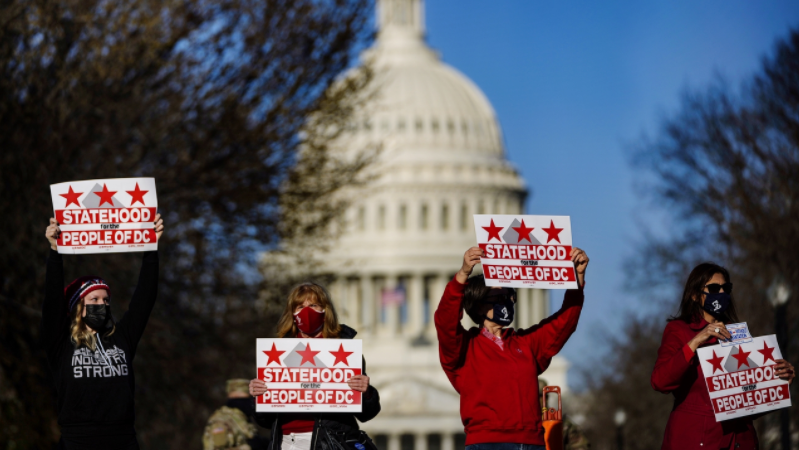Will Washington D. C. Become Our 51st State?
April 24, 2021
On Thursday, the US House passed H.R. 51: The Washington DC Admission Act, a bill that would admit Washington D.C. as the 51st state.
This is only the second time any house of Congress has advanced a DC statehood measure, with the only other time occurring less than a year ago.
DC statehood has never been closer.
Despite this historic vote, statehood is likely dead on arrival in the Senate, as the chances it garners the necessary 60 votes to pass and become law are next to zero.
The bill was introduced by Rep. Eleanor Holmes Norton (D), DC’s non-voting House member and only elected official in Congress.
Democrats, who are leading the push for statehood, claim it is a first step in a broader goal of expanding voting rights and representation in the United States during Biden’s first term.
Republicans, meanwhile, contest admitting D.C. as a state is nothing more than a power play by Democrats, introducing a new solid blue state and the elected officials that come with it.
Regardless of who’s right, what would a 51st state look like?
If it were admitted as a state, D.C. would have a larger population than both Vermont and Wyoming.
As it currently stands, D.C.’s 700,000 citizens pay taxes, serve in the military, and have limited local control over the laws they enact and have no voting representation in Congress.
With statehood, they would be entitled to two senators and at least one House member, bumping the total number of Senators up to 102 and extending voting rights to DC’s current non-voting House member.
The new state would be renamed the “Washington, Douglass Commonwealth” in honor of President George Washington and famed slavery abolitionist Frederick Douglass, who lived much of his adult life in DC, and would include all of the city except the US Captiol, White House, Supreme Court, and all other federal buildings.
Those important federal buildings, where there are no permanent residents, would remain a federal district under the control of Congress.
Additionally, a 51st star would be added to the American flag, marking the first major change to the flag since 1959 when Alaska and Hawaii were admitted as states.
Regardless of how the fight for DC statehood ends, its historic nature is undeniable and is sure to dominate the airwaves for weeks to come.

































